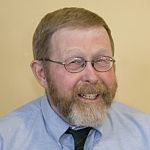 (HOST) The recent "Birther" debate has gotten commentator Willem Lange thinking about democracy, political parties and the real meaning of Patriotism.
(HOST) The recent "Birther" debate has gotten commentator Willem Lange thinking about democracy, political parties and the real meaning of Patriotism.
(LANGE) A black SUV flew past us on the interstate, displaying a decal in the rear window: NO OBAMANATION! Both Mother and I did a double-take, she at the meanness of the slogan, and I at the negative response to solutions of problems that beset us all, whatever our persuasions.
One thing I give the Tea Partiers: They’ve gotten our attention. But I think many have forgotten the simplest principles of democracy: Never impugn the motives of others; load your head with facts before shooting off your mouth; we’re all in this little boat together; and you can’t always get what you want when you want it.
Times do change. Our conceptions of Constitutional guarantees do, as well; and our personal points of view clearly influence how we interpret them (the Second Amendment being a prime example). But we’re still obliged to debate matters as if it were possible that those with whom we disagree might have a point.
Samuel Johnson, the famous coffee house debater, wrote in a 1774 essay titled "The Patriot":
"A man sometimes starts up a patriot, only by disseminating discontent, and propagating reports of secret influence, of dangerous counsels, of violated rights, and encroaching usurpation. This practice is no certain note of patriotism….Few errors and few faults of government, can justify an appeal to the rabble; who ought not to judge of what they cannot understand, and whose opinions are not propagated by reason, but caught by contagion."
Now, in Johnson’s England the rabble couldn’t vote; in the United States we can. So it behooves us to be careful; to question the sources of every bit of information; to remember how much easier it is to believe arguments we agree with than those we don’t; to post on the walls of our minds the words of those smarter or more articulate than we.
The best person ever to appreciate the fragility of our republic has to have been George Washington. Having defeated the world’s most powerful army, an effort that often appeared foredoomed; aware of the chance to create something utterly new in the history of governments, but deeply concerned that factionalism and conflicting personalities could spoil it all, he crystallized his thoughts in his 1796 Farewell Address, which reads in small part, "Let me now…warn you…against the baneful effects of the Spirit of Party… This Spirit, unfortunately, is inseparable from our nature, having its roots in the strongest passions of the human mind. It exists…in all Governments; but in those of the popular form, it is seen in its greatest rankness, and is truly their worst enemy."
This is Willem Lange in East Montpelier, and I gotta get back to work.